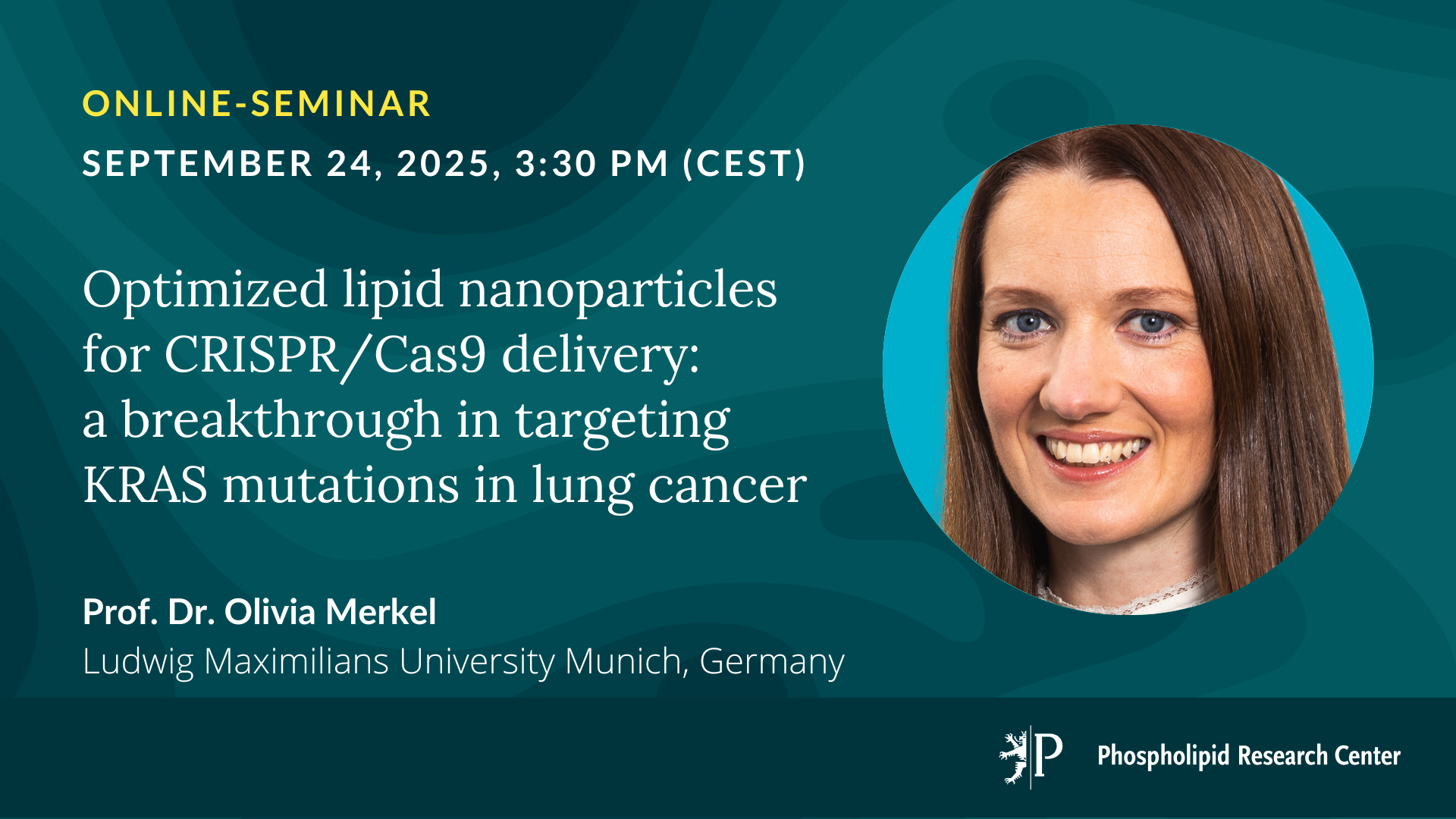Webinar September 2025 – Prof. Merkel
On Wednesday, September 24, 2025, an online seminar on "Optimized lipid nanoparticles for CRISPR/Cas9 delivery: a breakthrough in targeting KRAS mutations in lung cancer" was held at 3.30 p.m. (CEST).

The speaker was Prof. Dr. Olivia Merkel from Ludwig Maximilians University Munich, Germany.
Here you can register for the webinar.
Abstract
KRAS mutations, present in up to 30% of lung adenocarcinomas, remain a major therapeutic challenge due to limited druggable targets and emerging resistance to KRAS G12C inhibitors. CRISPR/Cas9 offers a promising genome-editing strategy to overcome these limitations.
In this study, we optimized LNPs for co-delivery of Cas9 mRNA and sgRNA targeting KRAS G12S mutations. A library of 14 mRNA-LNP formulations was screened for their physicochemical properties and transfection efficiency, yielding particles ~100 nm in size, with low polydispersity, neutral zeta potential, and 60–90% encapsulation efficiency. All LNPs achieved effective eGFP expression in a non-small cell lung carcinoma (NSCLC) cell line, outperforming the benchmark formulation by 10-fold. Subsequently, we optimized the Cas9 mRNA:sgRNA weight (w/w) ratios in the best-performing LNPs, which maintained consistent physicochemical properties. The lead candidate achieved up to 95% eGFP knockout. When tested in an A549 cell line harboring the KRAS G12S mutation, these LNPs demonstrated approximately 60 - 80% gene editing efficiency, confirmed by droplet digital PCR. The ability of the optimized Cas9 mRNA:sgRNA-LNPs to interfere with the downstream signaling was evaluated, and the selected formulations enhanced cell apoptosis rates in A549 cells by 3-fold compared to the positive control. These LNPs exhibited minimal cytotoxicity, maintaining cell viability of up to 80%. For in vivo validation, two lead formulations were administered intratracheally in a KRAS-mutant NSCLC xenograft mouse model. Gene editing, apoptosis induction, and inflammatory infiltrates were assessed and showed promising preliminary results and highlighting a favorable safety profile.
These findings demonstrate the potential of Cas9 mRNA:sgRNA-loaded LNPs as a targeted and efficient gene editing strategy for KRAS-driven lung cancer.
